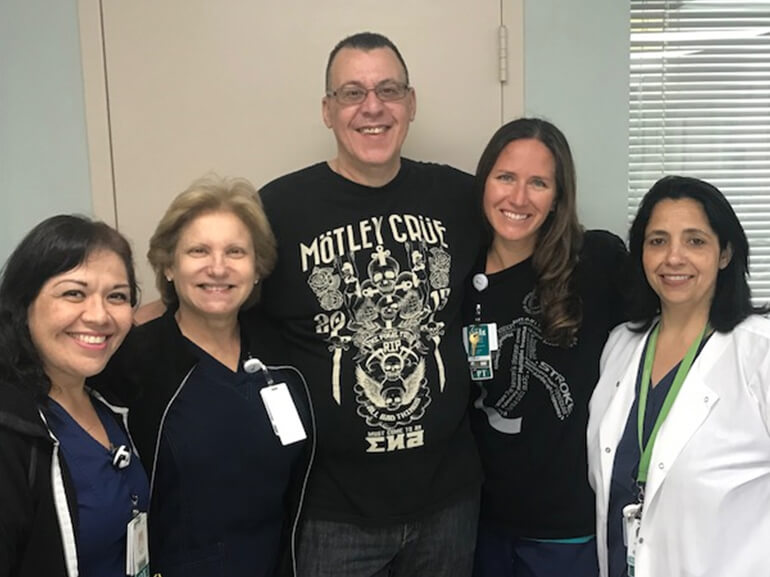Jose's story

Jose Exposito
In September 2010, Jose Exposito was diagnosed with chronic hepatitis C and cirrhosis. It was a difficult for him to accept, yet nothing could have prepared him for what was to come next.
Shortly after being diagnosed, Jose developed pedal edema - an accumulation of fluid in his feet and lower legs. That led to the build-up of fluid in his abdominal cavity, lungs and pericardium, the membrane around his heart. Over the next three years, he endured a series of painful procedures to remove the fluid - and at one point was having an average of 6.2 liters drained every 17 to 21 days. He also underwent placement of a trans-jugular intrahepatic portosystemic shunt (TIPS), a procedure to help reduce fluid accumulation and improve blood flow in his liver.
Jose was doing well until Mother's Day 2013 when he woke up feeling miserable, confused and disoriented. He was admitted to the Jackson Memorial Hospital with high ammonia levels, a signal that his liver was no longer functioning properly. Three days later, he got the call he had been waiting for: a liver had been found for him and on May 20, Jose became a liver transplant recipient.
Sixteen months later, Jose had a heart attack. When doctors inserted a stent to help regulate blood flow, they found Jose's arteries significantly obstructed; one was 90% blocked, a second at 60% and a third at 20%. He underwent successful double bypass surgery and was able to resume his daily activities - until May 2015 when he had a stroke. It impacted his speech, ability to walk and the use of his right arm.
Jose was transferred from the University of Miami Hospital to West Gables Rehabilitation Hospital to recover his strength and skills. He spent 19 days as an inpatient, followed by several weeks of outpatient therapy. Working closely with his West Gables team, he regained his balance, ability to walk, and use of his arm and improved his speech. Today, Jose says he's moving about "normally" and busy enjoying life - grateful to have survived this remarkable journey.